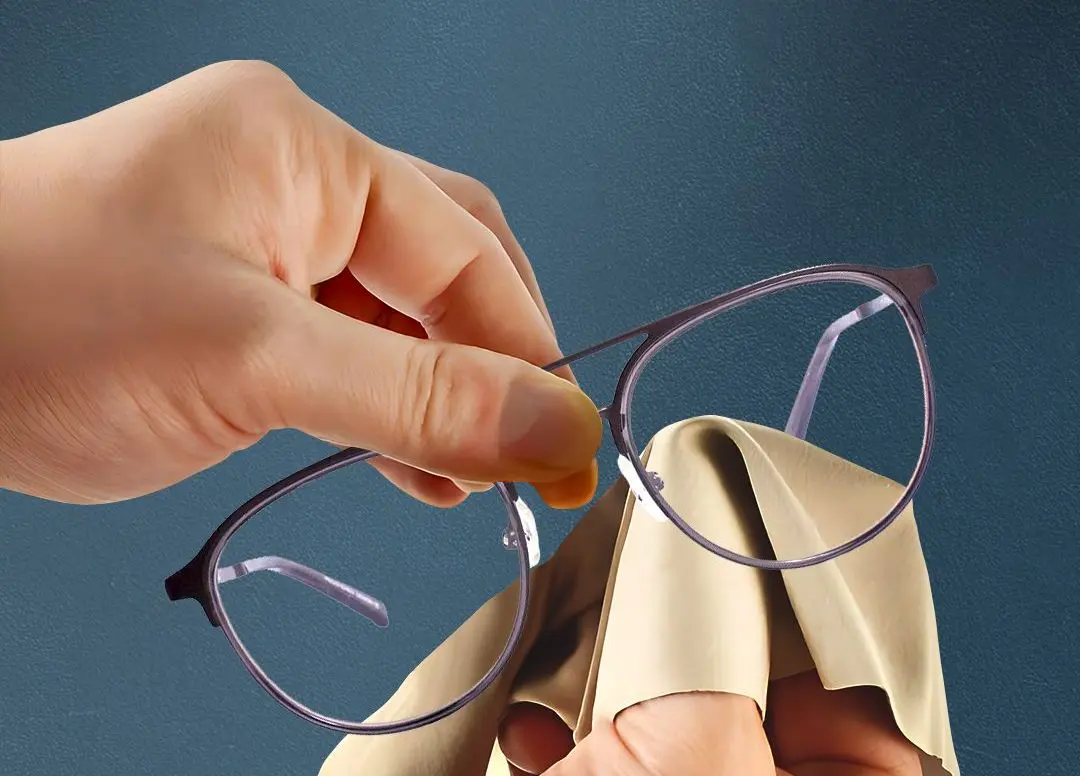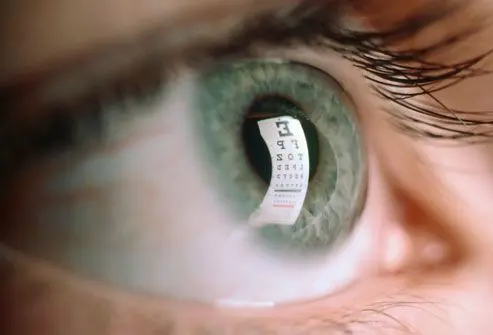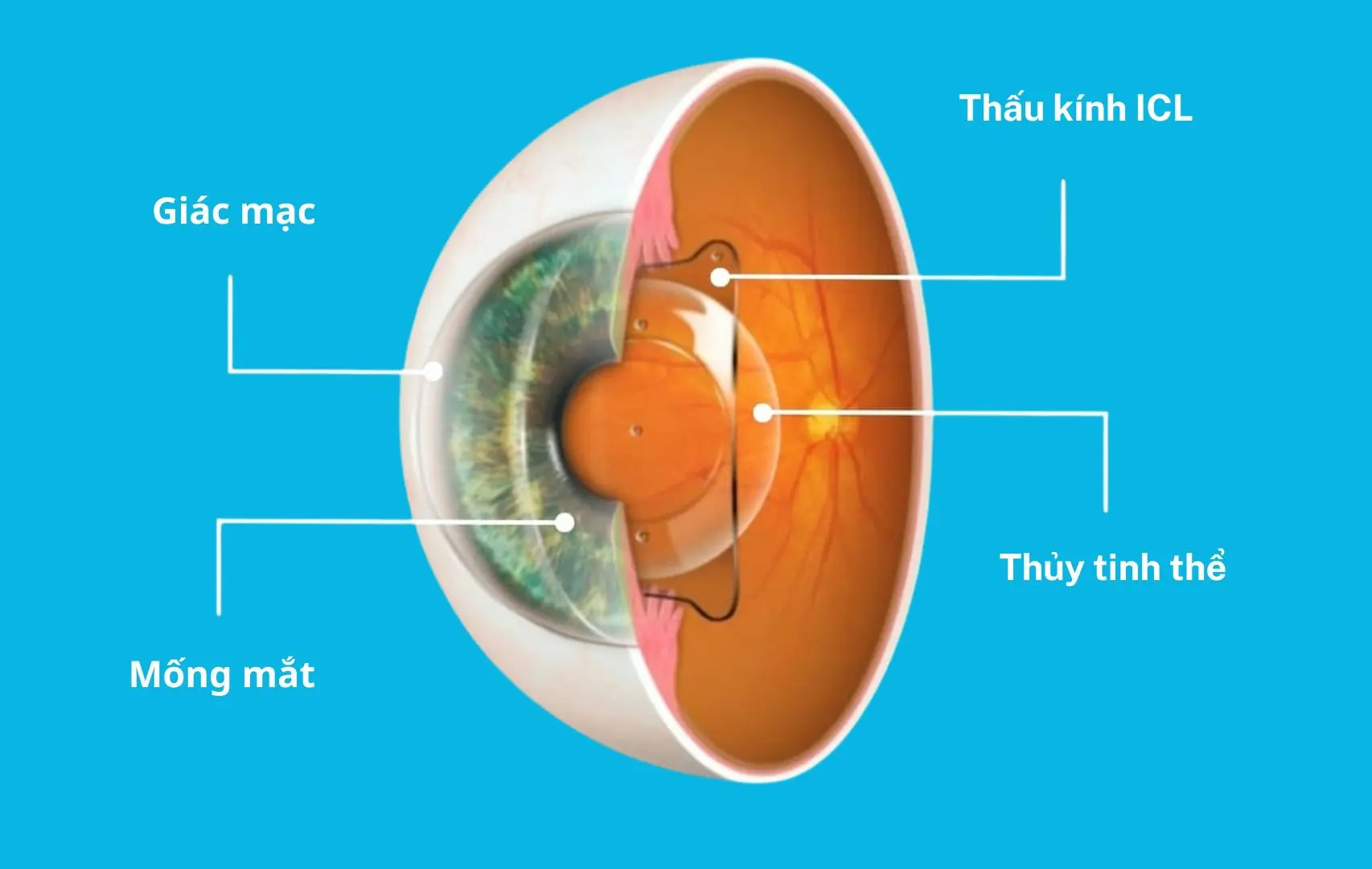
How Often Should You Replace Your Glasses to Avoid Wrong Prescription?
Introduction Prescription glasses are indispensable for people with myopia. Although small, a pair of glasses directly affects vision, learning and work performance, and the daily health of the eyes. However, not everyone knows when to replace their glasses to avoid wearing the wrong prescription — a leading cause of rapid worsening of myopia and persistent […]

Who Is Eligible for EVO ICL Vision Correction? International Qualification Standards
Introduction to Phakic Phakic ICL vision correction is becoming one of the leading choices for individuals with high myopia, thin corneas, or those who are not suitable candidates for laser-based procedures such as LASIK or SMILE. By placing a thin, flexible implantable lens inside the eye, this method allows light to focus accurately on the […]

EVO ICL and the Evolution of Visual Freedom
Overview of EVO ICL For many years, eyeglasses, contact lenses, and procedures such as LASIK and PRK have been considered popular options for improving vision. However, not everyone is suitable for these treatments—especially individuals with high myopia, thin corneas, or chronic dry eye. The introduction of the EVO ICL has marked an important evolution toward […]

Does EVO Surgery Hurt? Procedure and Recovery Timeline
Introduction Phakic surgery (Phakic ICL) has become a leading option for patients with high myopia, thin corneas, or chronic dry eye—those who may not qualify for LASIK or PRK. Thanks to the design of placing a lens inside the eye without altering the cornea, this method delivers sharp vision, fast recovery, and high satisfaction, with […]

What Is Phakic ICL? Benefits and Drawbacks of this technology
Introduction Phakic ICL is currently one of the most optimal solutions for people with high myopia, astigmatism, or hyperopia—especially in cases of thin corneas, dry eyes, or when LASIK/PRK are not suitable. In recent years, the use of Phakic ICL has increased strongly in developed countries such as Japan, South Korea, and the United States […]

How Much Screen Time Raises Myopia Risk in Kids?
Why Does Excessive Screen Use Make Children More Prone to Myopia? Screens have become an integral part of both learning and entertainment. Children use laptops, tablets, TVs, and smartphones to study online, complete homework, or watch entertainment content. However, science shows that excessive screen use and viewing at very close distances are two major factors […]

Why should students spend 2 hours outdoors daily to reduce myopia?
Introduction School-age myopia has been surging rapidly across Asia, especially in Vietnam. Many parents are searching for natural ways to help their children reduce myopia progression or at least slow down the rate of increase. One of the simplest methods—scientifically proven to be effective—is allowing children to spend 2 hours outdoors every day. But why […]

Things You Should Never Do After Myopia Surgery to Prevent Scarring
Refractive surgery to correct myopia (including Phakic ICL, LASIK, SMILE, or PRK) can deliver crisp vision and free you from eyeglasses and contact lenses. However, those results are maintained only if you care for your eyes properly in the months after surgery. During this period the cornea and other ocular tissues are very sensitive and […]

How to Maintain Eye Moisture All Day in Cold Weather
Why cold weather makes the eyes dry faster When cold winds arrive, the skin is not the only part affected. The ocular surface also loses moisture quickly due to cold, dry air and the tendency to drink less water in winter. When tear production decreases, the eye’s moisture cannot be maintained, making the eyes prone […]

Avoid 5 Makeup Mistakes for People With High Myopia
Introduction Makeup is a daily habit for many people, including those with high myopia. However, the eye area of people with severe nearsightedness is often more sensitive, more prone to dryness, irritation, and infection. Incorrect makeup practices can lead to blurry vision, discomfort, or more serious issues such as conjunctivitis, keratitis, or styes. This article […]

 vi
vi